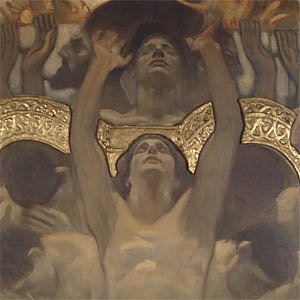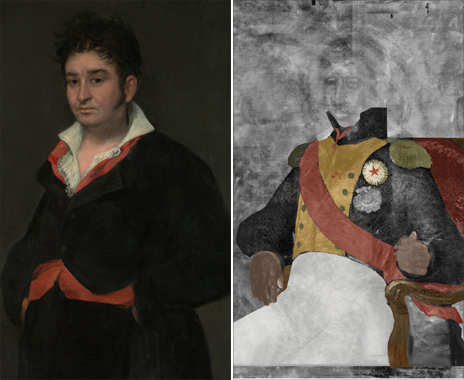Lectures this week
- CC101: Stephanie Nelson on The Culture & Religion of Ancient Greece (10/4)
- CC105, Tuesday: Scott Whitaker on atoms (10/4)
- CC105, Thursday: Midterm 1 (10/6)
- CC201: Victor Coelho on Claudio Monteverdi (10/4)
- CC203: Judith Swanson on Inequality, Property & Social Contract (10/6)
General announcements
- A reminder to alumni — if you will be in Boston during a scheduled course lecture, and have a desire to sit in, let us know. It is often the case that you’ll be able to join the audience as a guest.
- The Core Writing Center is now open; tutors will be available for half-hour appointments Monday through Friday, 10-1 and 2-4. Students may visit the Core office, CAS 119, to sign up for a session, or email us to request an appointment.
Upcoming events
- Tomorrow, Tuesday 10/4: Core in the City visits the Boston Public Library at Copley, to view John Singer Sargent’s famous mural, “Triumph of Religion.” Students should bring fare money for the T. Prof. Thornton Lockwood will lead the group, leaving from CAS 119 at 5 PM. RSVP to tlock@bu.edu.
- Wednesday, 10/5: Second planning meeting for the Spring 2012 Ecolympics. New and returning student committee members will join Prof. Daniel Hudon to discuss a new name for the program, to review last year’s participation and events, and to make plans to attracting more attention to this “competition for Planet Earth.” 5-6 MP, in CAS 129. Email questions to hudon@bu.edu.
- Thursday, 10/6: Second meeting for new staff of the Core Journal, 5-6 pm in the Core office, CAS 119. Staff members of the Core Journal are responsible for choosing submissions, copyediting, proofreading, and developing the layout of the printed journal. Please direct questions to editor Megan Ilnitzki, milnit@bu.edu.
- Sunday, 10/16: Core in the City trip to the Museum of Science Omni Theater, to see “Greece: Secrets of the Past.” Core has 15 tickets for the 1 PM showing; please sign-up in the Core office.
In other publications…
- Alumni who remember reading the Bhagavad Gita in CC102 may be interested in this article in this week’s New York Times, “How Yoga Won the West.”
_ _
If you have any ideas, or comments about Core activities, please contact Prof. Jennifer Formichelli.
Get connected with Core: The Core blog | Facebook | Calendar


